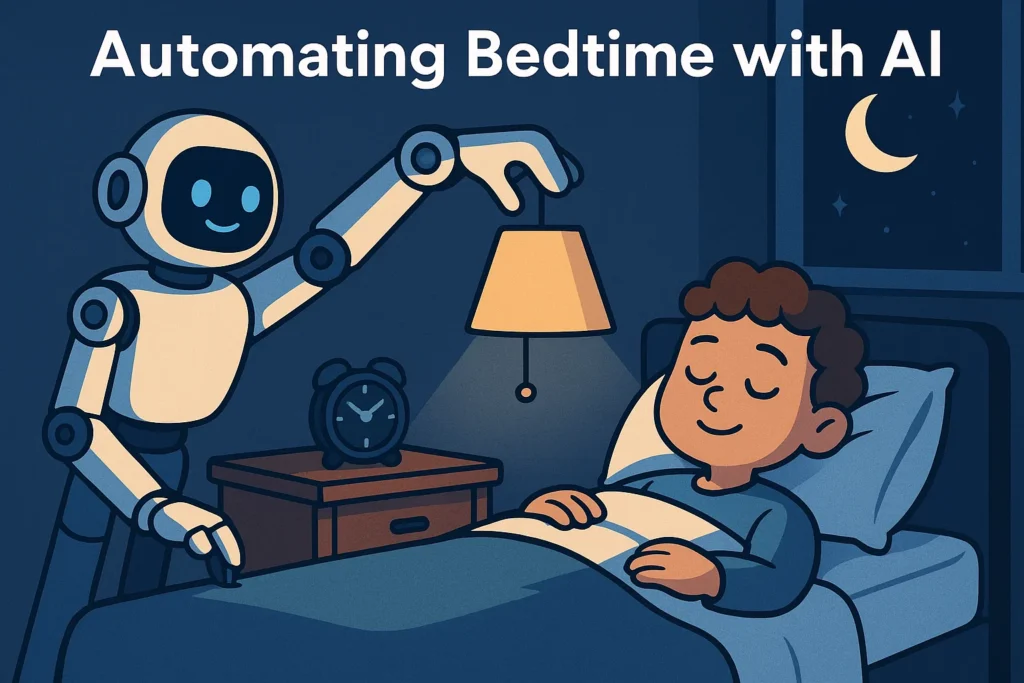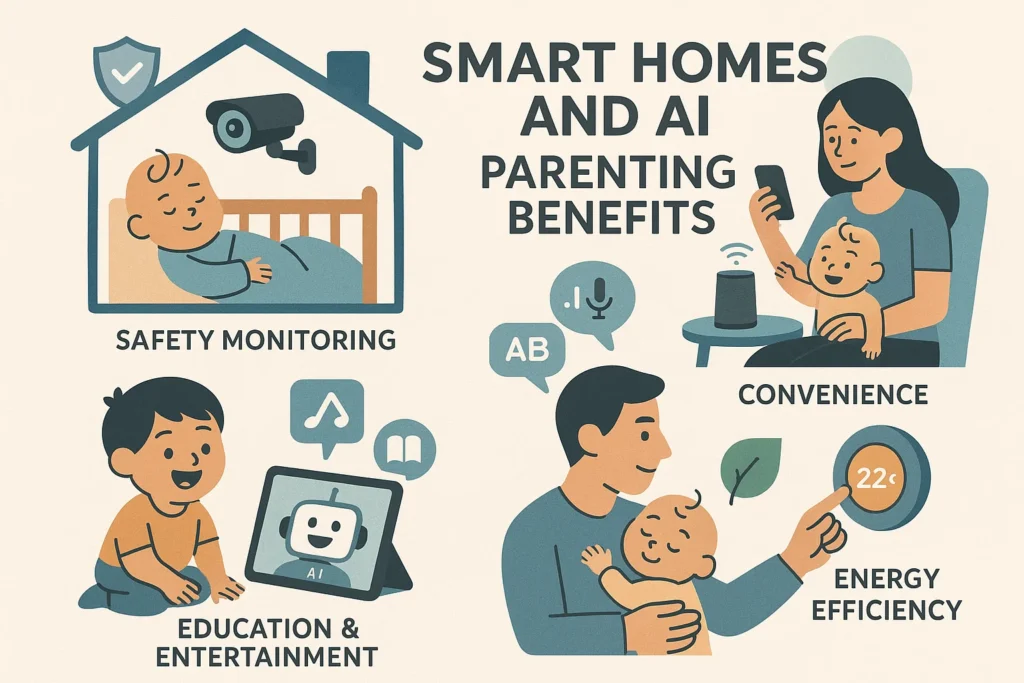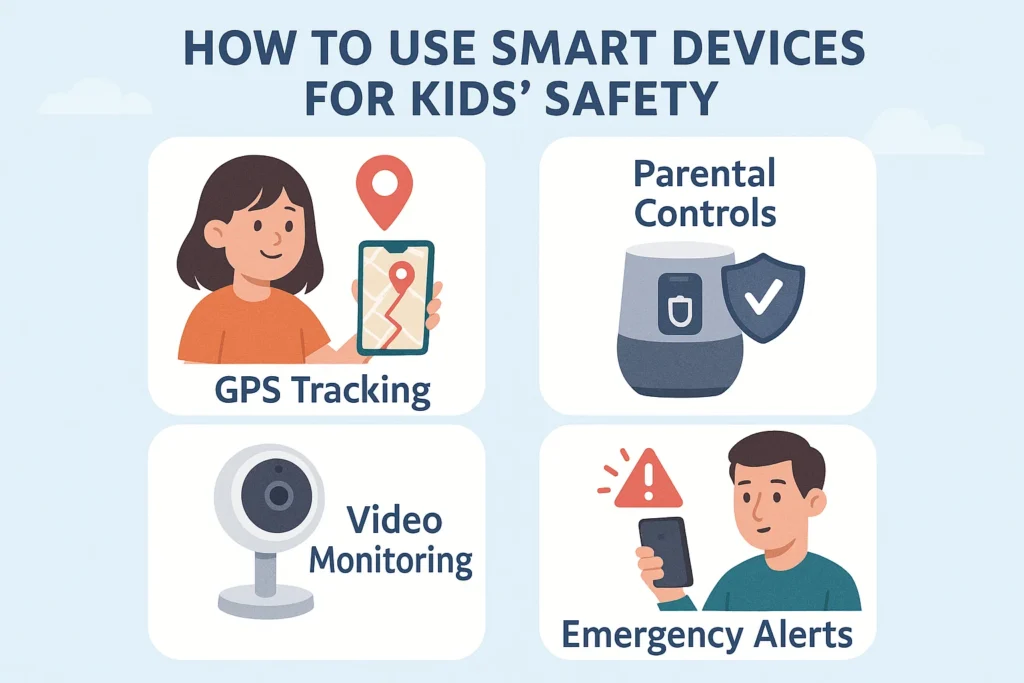🧠 Introduction
Ai Blogquest.com Every parent knows the bedtime struggle — endless stories, forgotten teeth brushing, and sudden thirst requests. But with AI bedtime automation, you can transform bedtime chaos into calm. AI now assists parents in creating consistent, relaxing, and personalized bedtime routines for kids using smart devices, voice assistants, and adaptive lighting.
🛏️ Why Automating Bedtime Matters
A consistent bedtime routine is vital for children’s growth, mood, and sleep quality. When kids go to bed at predictable times in a relaxing environment, they fall asleep faster and sleep deeper.
AI tools simplify this by handling routine tasks automatically, allowing parents to focus more on bonding and less on managing.
🤖 1. AI-Generated Bedtime Schedules
AI parenting apps like Huckleberry and ParentPal can analyze your child’s age, energy levels, and activity patterns to create a personalized bedtime schedule.
You’ll get automatic reminders for:
-
Bath time 🛁
-
Storytime 📖
-
Lights out 💡
These apps even adapt if your child’s nap runs late or if bedtime gets delayed.
🎵 2. Smart Sleep Sounds and Lullabies
AI sleep devices such as Hatch Rest+ use adaptive soundscapes and AI-generated lullabies. The system monitors your baby’s movement or crying and automatically plays soothing sounds to help them drift back to sleep.
💡 Pro Tip: Combine white noise with warm lighting for a stronger calming effect.
💡 3. Automated Smart Lighting
AI-controlled lighting systems like Philips Hue or Nanoleaf can simulate sunset tones that help the brain release melatonin, the sleep hormone.
They gradually dim lights before bedtime and can even gently brighten in the morning, simulating sunrise to wake kids naturally.
🗣️ 4. Voice Assistants as Bedtime Partners
Voice assistants like Alexa, Siri, or Google Assistant can be programmed for a bedtime routine:
-
“Alexa, start bedtime” could trigger:
-
Lights dimming
-
Calming music playing
-
Reminder to brush teeth
-
Storytime through voice narration
-
This consistency helps kids mentally prepare for sleep.
📱 5. AI-Powered Storytelling
AI storytelling apps (like Milo AI or Bedtime Stories by ChatGPT) can craft personalized stories featuring your child’s name, favorite animals, or adventures. This keeps kids engaged — and helps parents skip last-minute story improvisations!
💤 6. Sleep Tracking and Analysis
AI monitors track your child’s sleep patterns, heart rate, and breathing. Over time, they suggest tweaks like:
-
Adjusting bedtime by 15 minutes earlier
-
Lowering room temperature
-
Adding a pre-sleep wind-down period
This data-driven insight helps parents fine-tune bedtime routines for better sleep quality.
🧸 7. Parental Peace of Mind
The best part? AI bedtime automation ensures safety and consistency even on busy days. With smart alerts and connected devices, parents can check in without disrupting their child’s sleep.
💡 Conclusion
AI bedtime automation is not about replacing parental care — it’s about enhancing it. By letting technology manage repetitive tasks, parents can spend bedtime moments bonding, cuddling, and storytelling — the human touch that no AI can replace.
🌙 When AI takes care of the routine, you take care of the love.
🔗 Useful Links – AiParentingHub.com
-
Using AI to Monitor Room Temperature for Babies
-
AI-Based Baby Rooms
❓ FAQ
Q1. Can AI really help kids sleep better?
Yes. AI helps create consistent routines, adjusts the environment, and reduces overstimulation before bedtime, leading to better sleep.
Q2. Are smart bedtime devices safe for babies?
Most are. Choose products with low EMF emissions and those certified for nursery safety.
Q3. Can I customize AI bedtime routines?
Absolutely! You can add steps like prayers, brushing reminders, or music preferences using apps or smart home assistants.



